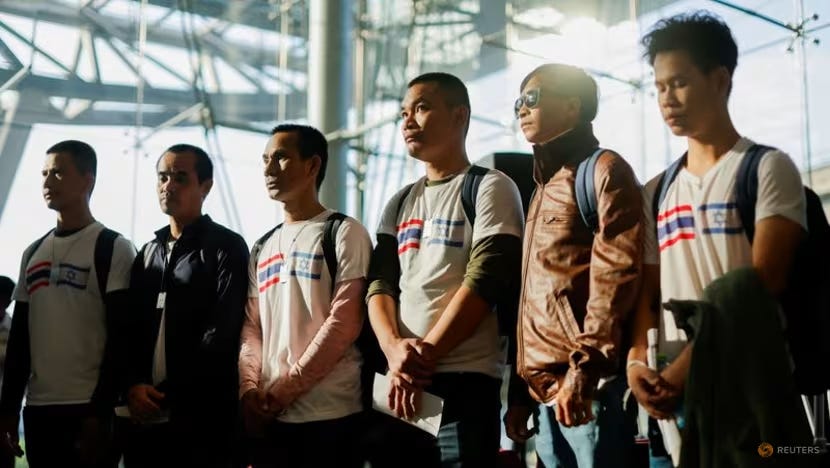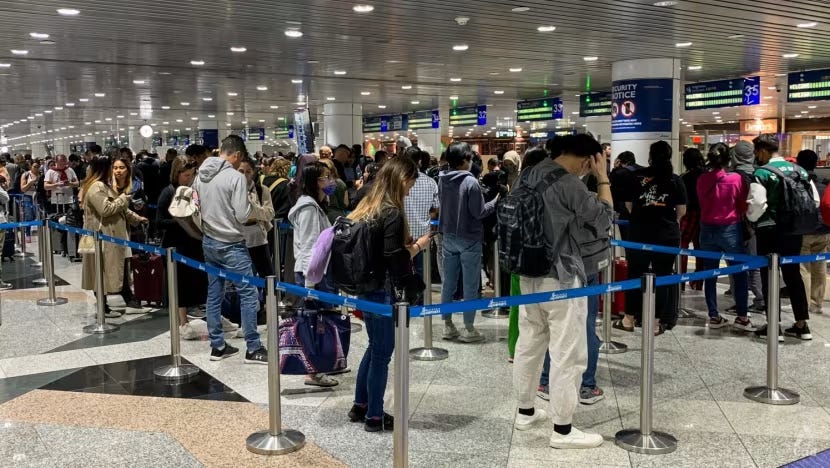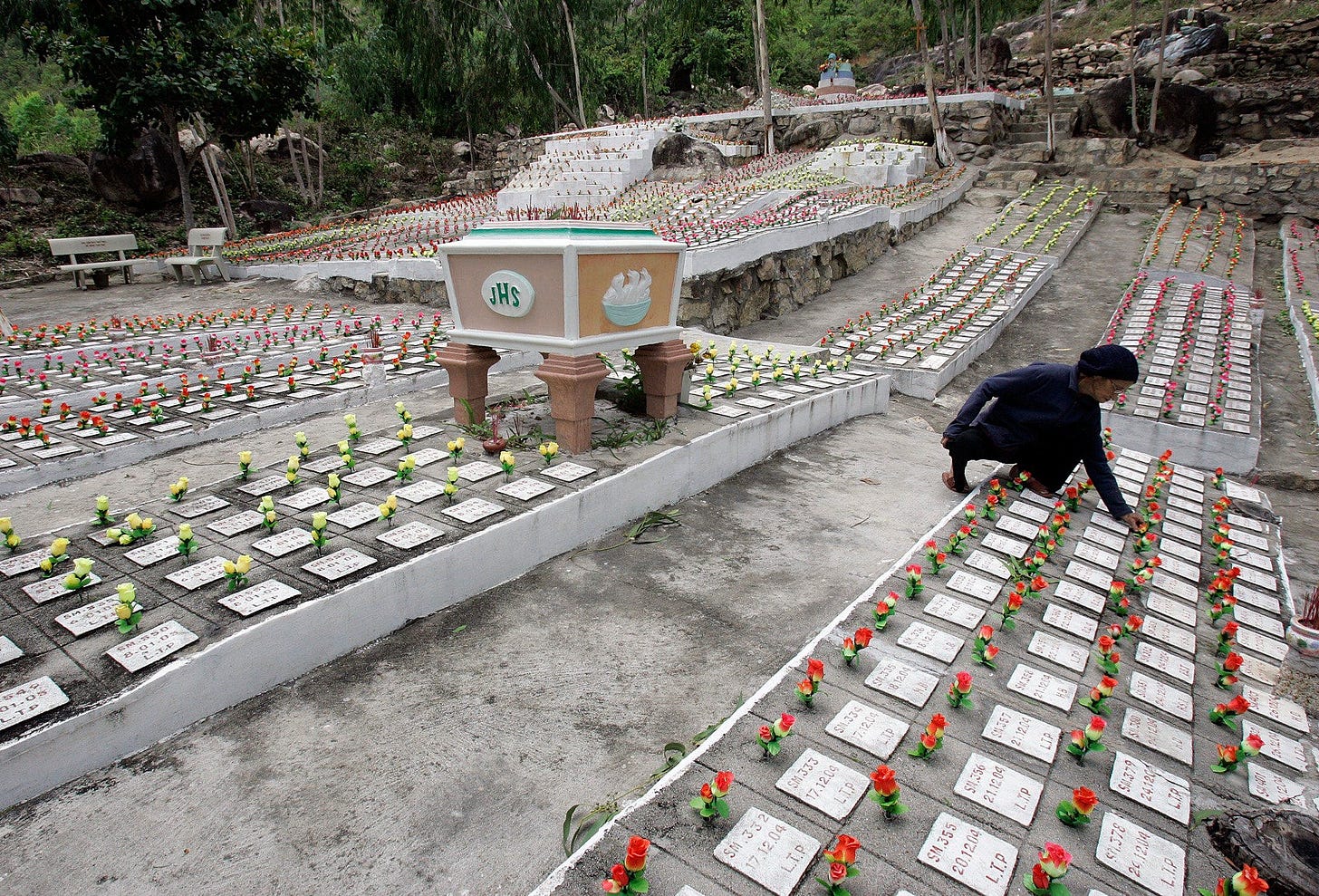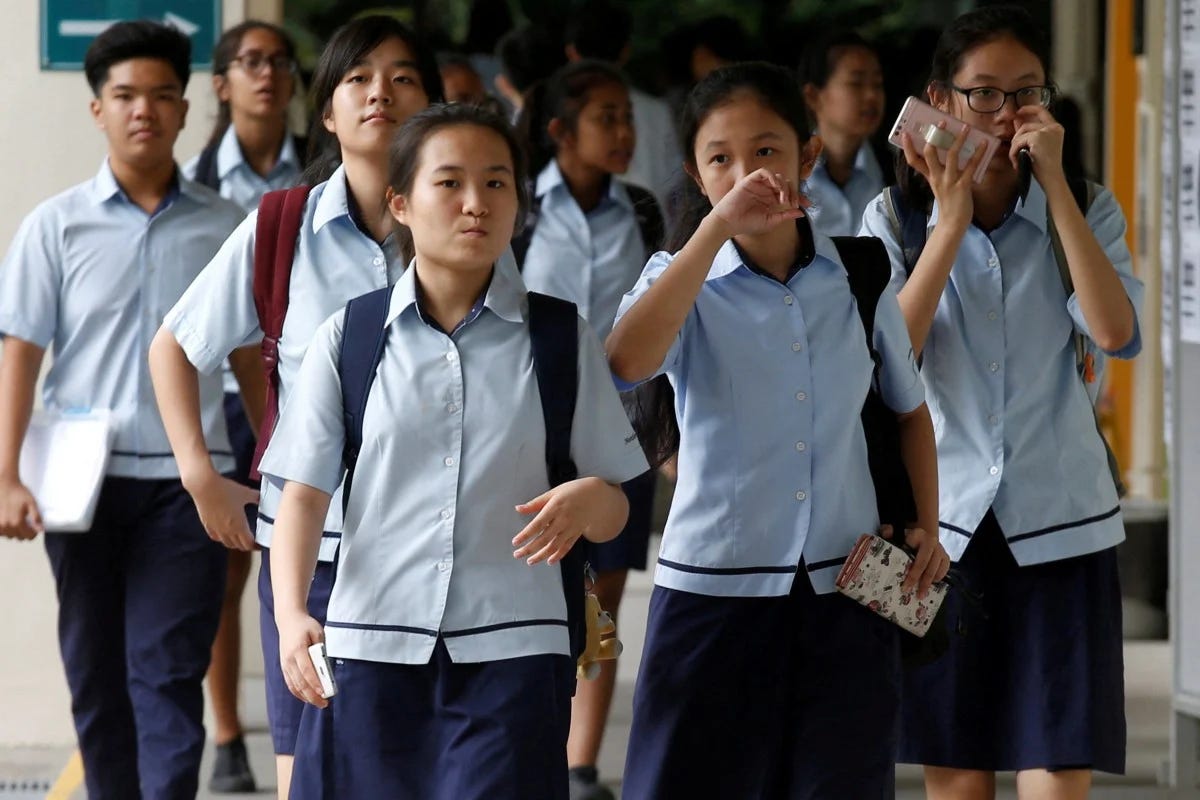Southeast Asian & World Briefs (6 December): Thailand's diplomatic success during Israel-Hamas conflict; Asia's Educational Supremacy; and Vietnam’s high abortion rate
Welcome to Wednesday, readers!
You may be wondering why there are two newsletters in a row. This is because there is a high volume of stories (~5), so I’d like to keep you informed within this volume. Otherwise, it becomes quite draining. I want you informed quickly, but also not mentally exhausted from it. Life is already bombarding us with ads and content everywhere.
Today’s edition focuses on various pivotal events. From Thailand's unique diplomatic success in the Israel-Hamas conflict to the societal and educational shifts in Asia. We examine Vietnam's complex social issues around gender and health, Singapore's progressive stance on pet ownership, and Malaysia's innovative approach to travel.
Let’s get right into it!
Tables of Contents and Summaries
Geopolitics
🇹🇭 How did Thailand Manage to Get Hostage Release Amid Israel-Hamas Conflict When Most Failed
Thailand achieved the successful release of its citizens held hostage by Hamas in Gaza through independent negotiations led by Thai Muslims and diplomatic engagements with Middle Eastern countries, emphasizing Thailand's neutrality and longstanding Arab ties.
Social
🪦 Vietnam's Doi Coc Cemetery: A Stark Reminder of the Nation's Struggle with High Abortion Rates and Gender Imbalance
Doi Coc Cemetery in Vietnam, dedicated to aborted fetuses, highlights the country's high abortion rates and prevalent gender selection, reflecting societal preferences for sons and the challenges of gender imbalance.
📚 Pisa Survey Highlights Asian, Especially Singapore, Dominance in Education, Europe’s Decline, and Student Well-being Concerns
The Pisa survey reveals Asian countries, particularly Singapore, leading in education globally, while Europe experiences a decline. The study also notes the impact of teacher support and raises concerns about student well-being and happiness.
🐱 Singapore to Allow Cats in Public Housing, Balancing Pet Ownership with Community Harmony
Singapore will lift the long-standing ban on pet cats in public housing, a move aimed at balancing pet ownership with community harmony, while addressing concerns about cleanliness and animal welfare.
📱 Malaysia Implements Digital Arrival Card, Exempts Singaporeans and Other Frequent Travelers
Malaysia introduces a digital arrival card, exempting Singaporeans and frequent travelers from filling it. The card aims to streamline entry processes and is part of Malaysia's efforts to boost tourism and national income.
Geopolitics
How did Thailand Manage to Get Hostage Release Amid Israel-Hamas Conflict When Most Failed
As conflict intensified between Israel and Hamas, Thailand engaged in successful dual negotiations for its citizens taken hostage by Hamas in Gaza.
Thai citizens were among the first hostages released by Hamas, separate from the ceasefire agreement between Hamas and Israel.
A team of Thai Muslims initiated an independent negotiation, leading to a meeting with Hamas' representative in Tehran, facilitated by a Thai scholar.
On October 26, Thai delegates met with Khaled Qaddoumi, a high-ranking Hamas member, securing a promise to release Thai hostages.
It is important to note that Hamas is designated as a terrorist organization by Western nations, including the US and UK.
Thailand's Diplomatic Strategy: The successful negotiation was attributed to Thailand's longstanding ties with the Arab world and diplomatic negotiations, especially between Thai Muslims and Hamas.
Analysts suggest that Hamas aimed to enhance its global image by releasing hostages unconditionally.
Dr. Lerpong Syed, a Thai negotiator, emphasized the non-governmental nature of their effort, appealing for the release based on Thailand's neutrality.
Thailand's Official Diplomacy: The Thai government also engaged in talks with Islamic world allies, including meetings with Saudi Arabia’s Crown Prince and officials from Egypt, Qatar, and Iran.
Thailand's recognition of Palestine and observer status in the Organisation of the Islamic Cooperation contributed to the successful hostage negotiations.
Thai foreign policy experts emphasize the importance of maintaining neutrality in foreign diplomacy.
Malaysia Implements Digital Arrival Card, Exempts Singaporeans and Other Frequent Travelers
Singaporeans, along with Malaysia long-term pass holders, Brunei common identification certificate holders, and Thai border pass holders, are exempt from filling in Malaysia's new digital arrival form, the Malaysia Digital Arrival Card (MDAC).
Foreigners who are not exempt must submit the MDAC within three days before arriving in Malaysia.
Malaysia's Home Minister clarified that frequent travellers to the country, including Singaporeans and Malaysia long-term pass holders, are not required to fill out the MDAC.
Submission Process: The MDAC can be filled out on the Immigration Department's website free of charge. It was introduced for Singapore passport holders to use e-gate facilities at Johor Bahru land entry points.
Grace Period: There is a grace period until December 31, during which foreigners can complete the form upon arrival. From January 1, the form must be submitted three days before arrival.
Tourists from certain countries, including Australia, Brunei, Germany, Japan, South Korea, New Zealand, Saudi Arabia, Singapore, the US, and the UK, can use Malaysia's automated entry system after a one-time manual registration.
Malaysia's Objectives: The MDAC is part of Malaysia's Visa Liberalization Plan to attract tourists and boost national income, alongside other initiatives like visa exemptions and multiple entry visas for certain nationalities.
Social
Vietnam's Doi Coc Cemetery: A Stark Reminder of the Nation's Struggle with High Abortion Rates and Gender Imbalance
In Northern Vietnam, Doi Coc Cemetery, covering over 1,000 square meters, is dedicated to aborted fetuses, reflecting the high abortion rates in the country.
The cemetery has mass graves, some containing up to 30,000 fetuses. Daily, around 15-20 fetuses are received, mostly girls, indicating prevalent gender selection.
Confucianism's influence in Vietnamese culture leads to a preference for sons, who are considered better for managing family wealth and caring for parents.
Illegal but Prevalent Gender-Selective Abortion: Despite laws against it, gender-selective abortions are common, with parents finding ways to ensure male offspring.
Vietnam faces a significant gender imbalance, with an estimated excess of 1.5 million males by 2034, leading to social issues like difficulty in finding wives, prostitution, and women trafficking.
Vietnam has one of the world's highest abortion rates, with official figures suggesting 300,000 cases annually, but local estimates indicate 1.2 to 1.6 million.
Reasons for High Abortion Rates: Poor sex education, lack of contraception access, and changing attitudes towards sex and love among the youth are cited as reasons.
Vietnam's fertility rates have halved since 1989, with many couples opting for fewer children due to high child-rearing costs.
Women often undergo multiple pregnancies or abortions to have a son, normalizing abortion but not mitigating its health consequences.
The rising number of abortions has led to the expansion of Doi Coc Cemetery, which is continually growing to accommodate more fetuses.
Pisa Survey Highlights Asian, Especially Singapore, Dominance in Education, Europe’s Decline, and Student Well-being Concerns
The Pisa survey by the OECD showed Asian countries, led by Singapore, excelling in education, while Europe experienced a significant decline, not solely due to Covid-19.
Singapore ranked first globally in the 2022 assessment, excelling in mathematics, reading, and science, with students significantly ahead in schooling years.
Asian Dominance: Other top performers in education included Macau, Taiwan, Hong Kong, Japan, and South Korea, particularly strong in mathematics.
European Downturn: European countries like Germany, Iceland, the Netherlands, Norway, and Poland saw notable drops in educational achievements, indicating long-term systemic issues.
Significant Skill Drops: In some European countries, the decline in skills equated to about a year's worth of education.
Top European Performer: Estonia emerged as the best European performer, with major EU countries like Germany and France ranking lower.
Stable US Performance: The United States showed little change from the previous survey, with weaker performance in mathematics but above average in reading and science.
Teacher and Parental Support: A key factor affecting performance is the level of support from teachers and school staff, with some systems lacking in resources and parental involvement.
Education Environment Changes: The education landscape has been significantly altered by COVID-19 and digital transformation since 2018.
Student Happiness: The survey also examined student happiness for the first time, revealing that top performers like Singapore, Macau, and Taiwan reported higher fear of failure and limited engagement in extracurricular activities.
Singapore to Allow Cats in Public Housing, Balancing Pet Ownership with Community Harmony
Rule Change: Singapore's government is lifting a 34-year ban on pet cats in public housing, aligning with the allowance of small dog breeds. The change is set to take effect in late 2024.
The ban, instituted in 1989, was due to concerns that cats, known to roam, create nuisances and hygiene issues in public spaces.
Many cat owners were unaware of the ban or indifferent, citing a lack of active enforcement. Fines for breaches can reach S$4,000.
Cat Management Framework: The proposed framework includes licensing and microchipping of domestic and stray cats, aiming to resolve long-standing debates between cat lovers and detractors.
While some residents welcome the move, others express concerns about cleanliness and the potential increase in the number of cats in public estates.
The Cat Welfare Society suggests mandatory sterilisation to address issues like rampant breeding and related nuisances.
The Housing Development Board (HDB) emphasizes maintaining a harmonious living environment and balancing the interests of pet lovers and other residents.







